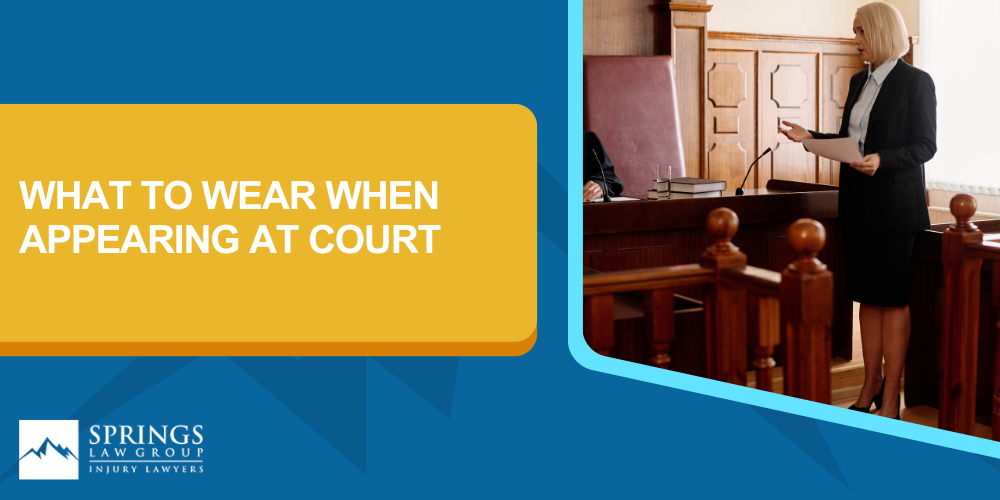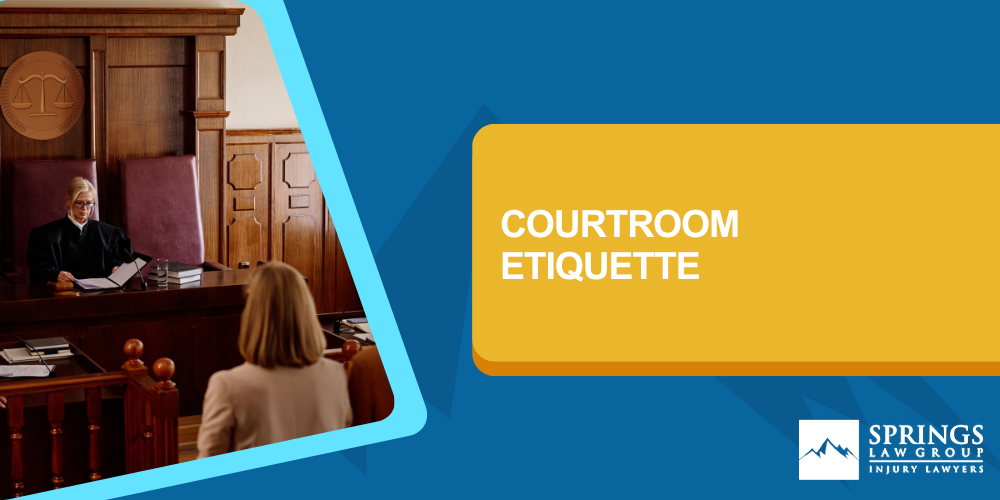The Dos and Don’ts: Courtroom Fashion

What To Wear When Appearing At Court

I have seen a broad range of outfits my client’s have chosen to wear to court. Although, none have been as bad as a few court-goers that I have spotted wearing pajamas. Don’t wear pajamas to court. Just because you can’t wear your sleepwear to court doesn’t mean you have to adorn yourself in formal black tie gear. That being said, you don’t even have to wear a suit. I always recommend business casual. Not quite jeans, and not quite a suit. The key is to look presentable to the Judge, but also not appear as though you are desperately trying to win the Judge’s favor by wearing a fancy suit. Judges respect your respect of the courtroom, that’s it. Don’t go to the extreme.
Courtroom Etiquette

Being in the courtroom can be scary. But if you know how to act, the fear is easily diminished. Courtroom etiquette is fairly basic. Follow these easy steps, and it should be stress free:
- When the Judge enters the room, you stand up. You stay standing until the Judge allows you to sit. When the judge stands up to leave, you stand up.
- Where do you sit? If you are the Petitioner you take the table nearest to the jury box. This is actually a fun little fact that I was not aware of until a few months into my practice!
- Do not speak unless spoken to. The oldest rule in the book. This means no outbursts, don’t cut other people off, and certainly don’t cut off the Judge.
- Do not argue with the Judge. Sometimes people get rulings they are unhappy with. This does not mean you have the opportunity to start arguing with the Judge on the spot. There are legal mechanisms available for you to challenge a Judges’ rulings.
- Which leads me to my next point. When the Judge is giving the ruling try to keep your reactions minimal. I have seen people gasp, mutter comments under their breath, call the Judge bad names, and even get up and leave. I assure you, any reaction you give during the ruling will have absolutely zero impact on the Judge’s decision.
- Lastly, and most simply, be polite.
Giving Testimony In The Courtroom

Providing testimony is never fun. As an attorney I get to ask the questions, which to be fair, isn’t always the easiest job. However, providing testimony is a challenging and unique position to be in. As an attorney I have only been on the stand one time, and it was a nerve-wracking experience. I had to turn my attorney self off and let a complete stranger aggressively question me about things I barely recalled. When you are called as witness for your own case, your attorney will be the first one to ask you questions. You should be prepared for this. It is an opportunity for you to provide the court with your story. Your attorney will guide you through your story making sure you hit all the points you need to. The scary part is when the other attorney asks you questions, the cross-examination. Don’t be fearful. The other attorney’s questions are designed to intimidate and trap you. This may not seem helpful, but knowing this is their game plan is half the battle. The best thing you can do is be honest. Generally in family law cases, the cross-examinations don’t often get out of hand. However, a good attorney will prepare their client to anticipate the sort of questions that an opposing counsel might pose. Again be polite, sometimes when snarky answers are given, snarky questions are asked.
Going to court is hard; don’t make it harder on yourself. A good attorney will help prepare you. A hearing allows you to tell your story and have your issues resolved, it shouldn’t be the Thunder Dome.
